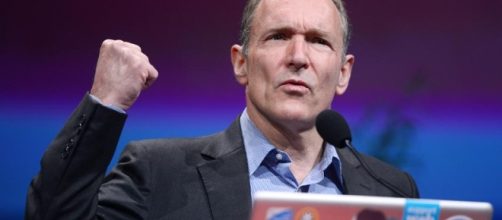On the 28th anniversary of the Worldwide Web's inception, its inventor, Sir Tim Berners-Lee points out disturbing trends that threaten to destroy his vision of the web and its true potential of serving humanity as a collaborative tool for the good of the world. The three trends which he highlights in an op-ed piece in the Guardian are the loss of control over personal data, the ease in which fake news proliferates, and transparency of political advertising.
Wouldn't it be great if Tim Berners-Lee started every sentence with 'I invented the Web'? https://t.co/d3S2sbSFB8 pic.twitter.com/p18s4JowcJ
— Robert Colvile (@rcolvile) March 12, 2017
Our privacy matters
Berners-Lee says in the Guardian op-ed that the loss of individual control over personal data in exchange for free content may seem acceptable at first glance but the blanket "all-or-nothing" terms and conditions that websites use for their business model ultimately endangers freedom of speech when the misuse of the personal data can empower governments or entities to use this data for monitoring political opponents, bloggers, or activists which could in extreme cases lead to their arrest or even death.
Berners-Lee further states in the Guardian op-ed that "Through collaboration with – or coercion of – companies, governments are also increasingly watching our every move online, and passing extreme laws that trample on our rights to privacy."
Ease of fake news proliferation
Berners-Lee says that it is too easy for fake news to spread due to the way the majority of people are currently consuming their news which is via a handful of social media sites and search engines. These same websites feed upon the personal data they collect and use bots and algorithms to push articles which, Berners-Lee states in the Guardian op-ed, is "designed to appeal to our biases [and] can spread like wildfire."
When @timberners_lee speaks up, we need to listen. https://t.co/POKblrESSk pic.twitter.com/MHARiiF2kj
— MortenRandHendriksen (@mor10) March 12, 2017
Solutions to complex problems
Computer scientist Berners-Lee acknowledges that the solutions to the problems will be challenging but calls web companies to work with people to put the control of personal data back to the people.
He states that people need to fight back against government surveillance laws and continue encouraging companies such as Google and Facebook to stop the spread of misinformation. He emphasizes the need for algorithmic transparency and the understanding of how algorithms impact web companies' decisions on people's lives. He suggests the need for people to set up principles for companies to adhere to.
He ends the op-ed piece with the promise to continue working with his Web Foundation towards a five year strategy plan, and calls on people to contribute and to help fix the problems of the web together.

